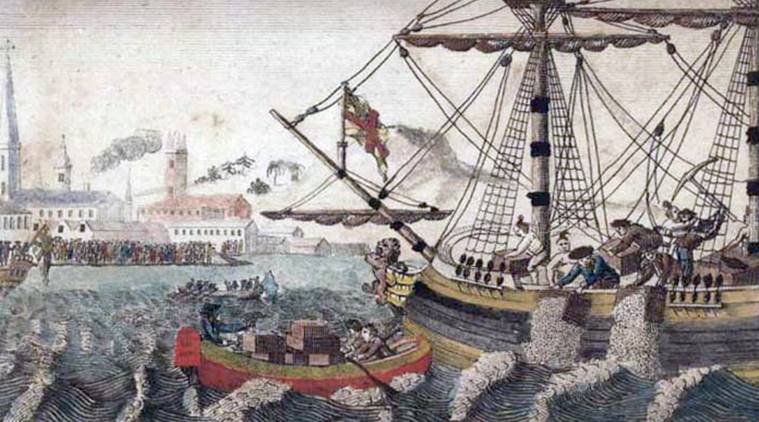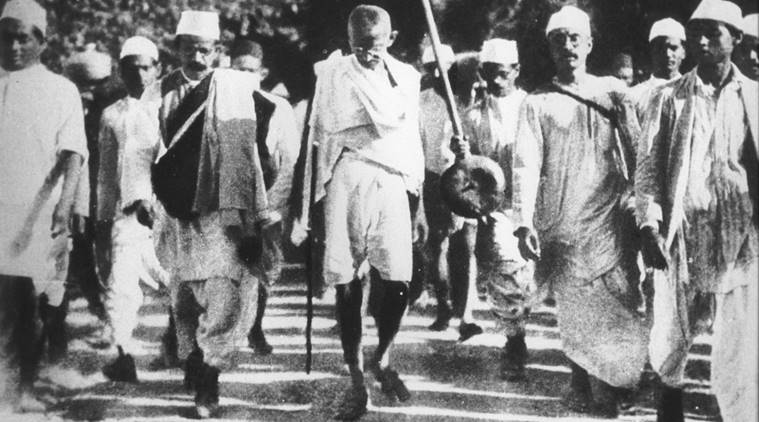MAHATMA GANDHI INSPIRES FROM AMERICAN INDEPENDENCE STRUGGLE - ONE LEARNS FROM HISTORY
On July 4, America celebrates their hard won victory from the oppressive tax system of the British Empire. On this day, about two and a half centuries back, the 13 states of North America, which was part of the British Empire had declared themselves independent and formed the United States of America.
The American struggle for independence was definitely very different from nationalist uprisings in other colonies of the British in the East. In America it was the British settlers who entered into a bitter scuffle with British government authorities.
In his call to Indians to resist British domination, Mahatma Gandhi often referred to and drew inspiration from the American revolution. On January 4th, 1932, when Gandhi was actively propagating ‘Satyagraha’, he wrote the following message in his weekly journal, ‘Young India’
“Even as America won its independence through suffering, valour and sacrifice, so shall India, in God’s good time achieve her freedom by suffering, sacrifice and non-violence.”
In March 1930, when Gandhi had embarked upon the famous Dandi march to protest against the draconian salt tax imposed by the British authorities, the resonances his movement had with the historic Boston Tea Party are difficult to ignore.

On November 16th, 1773, North American protesters who called themselves ‘Sons of Liberty’ had successfully stirred up the British Empire, when they dumped huge quantities of tea brought to the shores of Boston from China, into the water of the harbour. Dressed like native American-Indians, and crying slogans of ‘Boston harbour a tea-pot tonight’, the North American colonists had fearlessly stood up against the Tea Act imposed by the British government in 1773.
The Tea Act of 1773 gave a monopoly of tea trade to the English East India Company. It was resisted by the colonists on ideological grounds. In the words of Samuel Adams, one of the most prominent leaders of the American revolution the British tea monopoly was “equal to a tax.”
Also from Express Research: Imperialism: The real story behind Tarzan and Mowgli
The Boston Tea Party came as a huge shock to the Crown in England and eventually resulted in the bitter conflict between Britain and the thirteen colonies which lasted from 1775-1783, culminating in the independent formation of the United States of America.
 Like the Boston Tea Party, Gandhi’s salt march played the role of awakening the British authorities to take seriously the demands of Indian nationalists. (Source: Wikimedia Commons)
Like the Boston Tea Party, Gandhi’s salt march played the role of awakening the British authorities to take seriously the demands of Indian nationalists. (Source: Wikimedia Commons)
Like the Boston Tea Party, Gandhi’s salt march played the role of awakening the British authorities to take seriously the demands of Indian nationalists. The 24-day march, culminating in Gandhi boiling salty mud in sea water, was a symbolic act of resistance against the British government’s monopoly on salt. The salt march was soon followed by a mass civil disobedience movement that shook the very roots of the Raj in India.
Finally, the following year saw the signing of the Gandhi-Irwin pact which was one of the first instances of the British loosening its control on India. In less than two decades after the pact, the British would be seen bidding farewell to this colonial asset.
Comments
Post a Comment